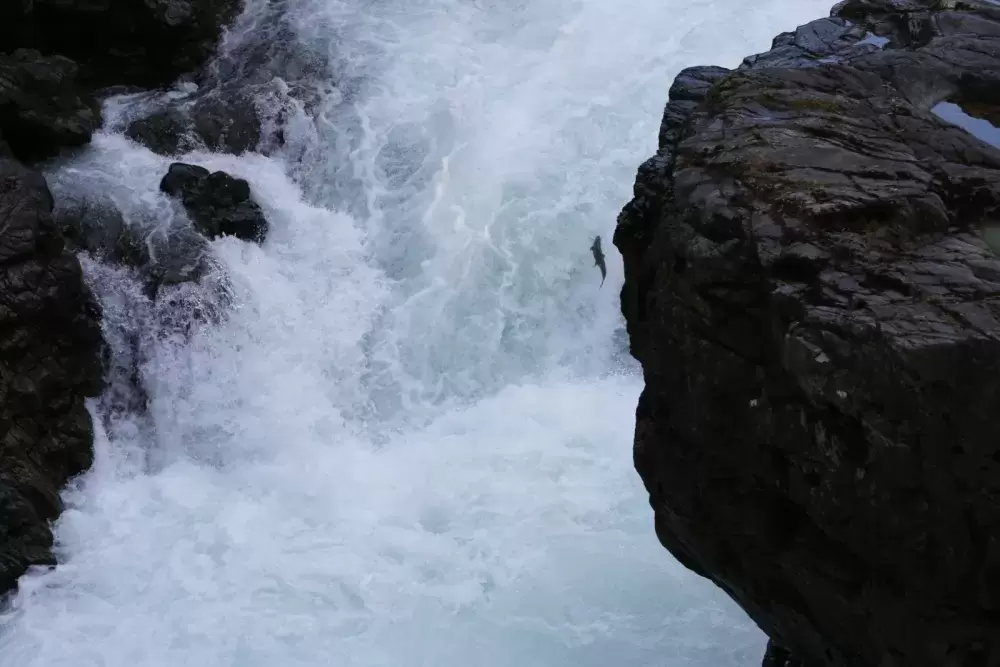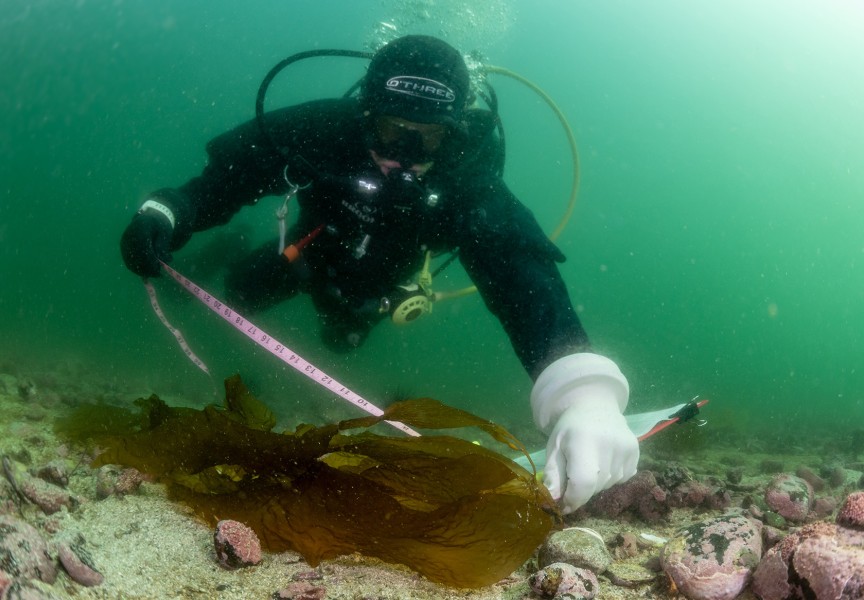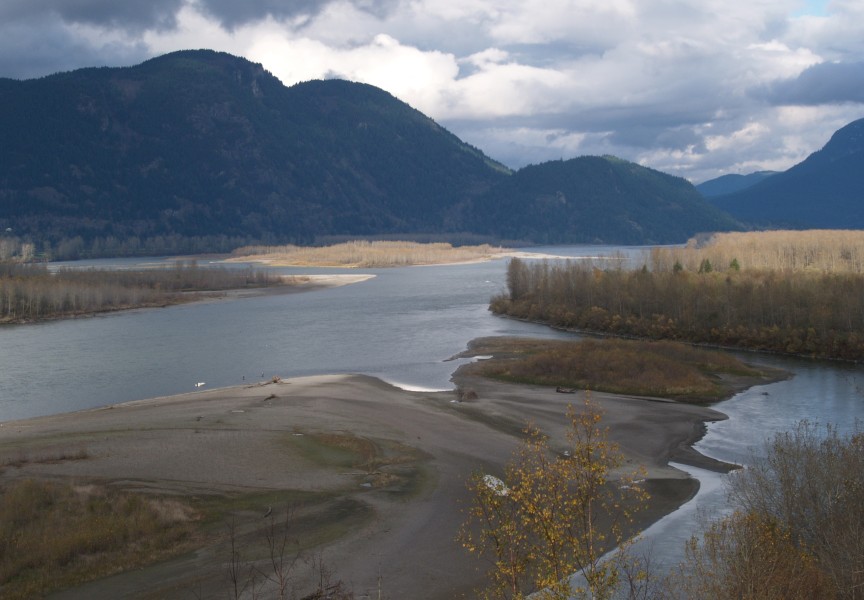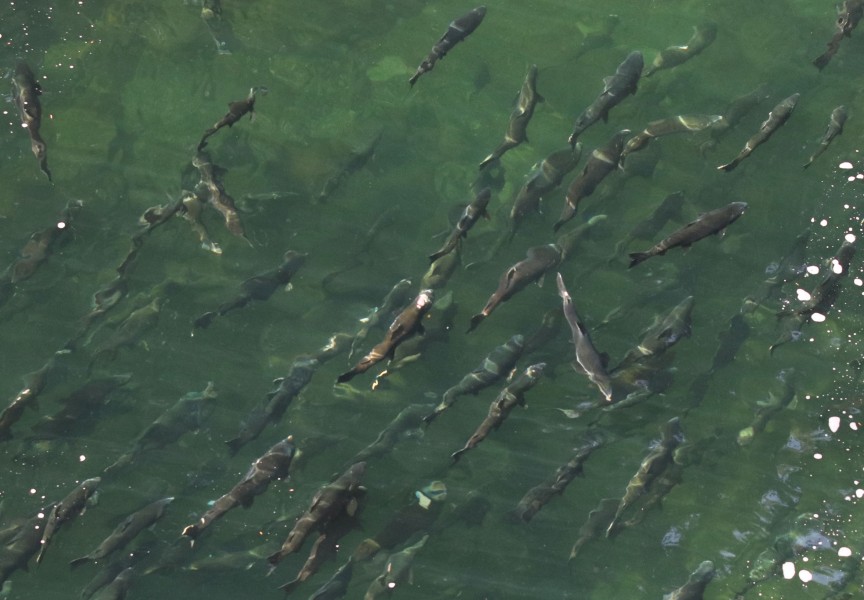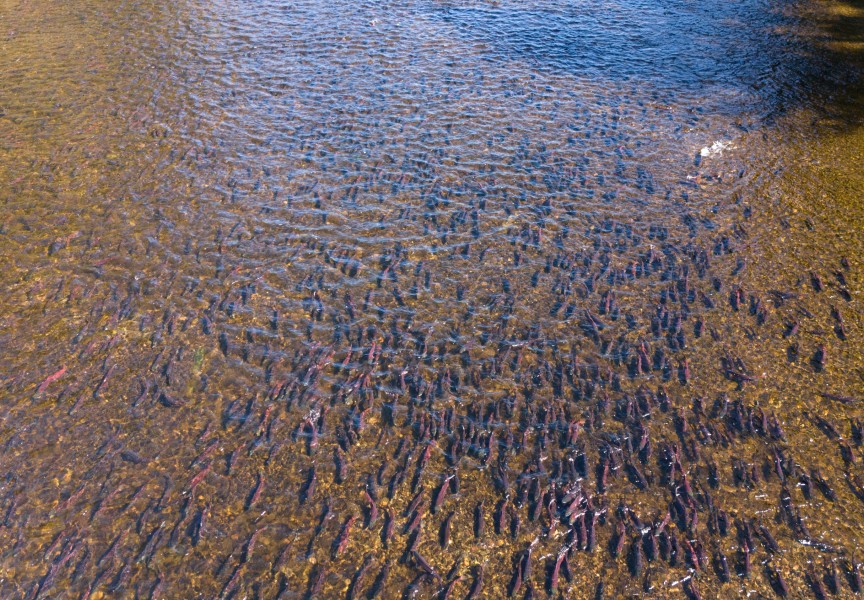“We’re not going to save Pacific Salmon through a government program,” says the head of the First Nations Fisheries Council of B.C., during the announcement of a coalition formed to stop the path to extinction for the species.
On Monday, Feb. 6 the fisheries council announced the Save Our Salmon (SOS) Coalition, a group of organizations and individuals formed to be a strong voice for the protection of the species on the West Coast. Besides the First Nations Fisheries Council, the coalition includes the Pacific Salmon Foundation, both the Upper and Lower Fraser Fisheries alliances, as well as its first sponsor HeliCat Canada, a helicopter skiing and adventure tourism operator. The coalition was announced in a downtown Vancouver hotel on Feb. 6, across the street from IMPAC5, an international congress on marine protected areas being held in the Vancouver Convention Centre for nearly a week.
With the slogan “Extinction is not an option”, the SOS Coalition announced that 90 per cent of Pacific salmon populations have declined since the 1970s.
Several stocks are listed as endangered, and in Nuu-chah-nulth territory several chinook populations are considered under threat by the Committee on the Status of Endangered Wildlife in Canada. The Tla-o-qui-aht First Nation has not permitted its members to harvest sockeye from the Kennedy Lake system since 1992, with hopes that this closure will one day allow the salmon to return to a river that once supported commercial fishing.
“There are some First Nations in B.C. - I can name my own, Tseshaht - who have hung up their nets at one time when there was a threatened return of sockeye salmon,” said Braker during the SOS announcement.
He noted that the state of the species can make First Nations feel threatened.
“I cannot imagine the cultures of the West Coast people without salmon, it would be difficult,” he said. “We believe that the choices made by British Columbians today will have an effect on the future for the returns of salmon.”
“The current outlook is extremely dire. Waiting and talking is not an option anymore,” stressed FNFC Executive Director Jordan Point. “This is about all British Columbians.”
Salmon have continued to decline despite decades of government initiatives to protect the species, including a voluntary licence retirement program that has left the commercial fleet at roughly half the size it was in the mid 1990s. In June 2021 Fisheries and Oceans Canada announced the Pacific Salmon Strategy Initiative, a complex $647-million plan to protect and rebuild stocks through a combination of improved scientific monitoring, habitat rehabilitation and boosting hatcheries to raise fish for coastal waters.
The PSSI has been criticized by the Nuu-chah-nulth Council of Ha’wiih Forum on Fisheries for using two thirds of its funds to boost capacity within the DFO, but the initiative’s head said that others outside of the department will take on leading roles as well as the plan unfolds.
“There will be quite a bit of funding going out to fishers, both Indigenous and non-Indigenous,” said Sarah Murdoch during an interview with Ha-Shilth-Sa last summer. “In a few different areas there is going to be some shifting and growth. It will be new investments in science, for instance, largely focused on what we’re realizing more and more, and getting to understand what’s going on from a science perspective in terms of climate change and some of the broader ecosystem impacts.”
But salmon will need more than the government’s multi-million-dollar plan to survive, stressed the First Nations Fisheries Council.
“Government and all British Columbians have to make this a priority for their life,” said Braker. “First and foremost is to educate British Columbians and make sure that they all understand what is happening to Pacific salmon.”
“This cannot be left to the hands of politicians; this cannot be left to the hands of an election cycle,” said Michelle Corfield, a consultant and founding member of the FNFC. “This is far more important to British Columbians and the youth that we’re raising to leave to the hands of politicians. We call upon you British Columbians to step forward to stop the extinction of wild Pacific salmon.”
With a social media campaign raising the alarm, the coalition plans to meet with forestry companies and natural resource operations that affect the habitat the species relies on. They even plan to discuss the issue with Alaskan fisheries, due to ongoing concerns that boats off the state’s southeast coast are overfishing depleted stocks before they can migrate to B.C. river systems. In January 2022 this issue was raised by a report from SkeenaWild Conservation Trust and the Watershed Watch Salmon Society, while an annual review of the species’ management was underway for the Pacific Salmon Treaty.
“We need to talk to Alaska and make sure we’ve got them on board,” said Braker. “We know that the First Nations in Alaska support our decision, now we have to make sure that all Alaskans support our position.”
Amid the dire warnings, a rare point of optimism came from Mike Meneer, president and CEO of the Pacific Salmon Foundation. A poll from the foundation found that 86 per cent of B.C. residents ranked the decline of Pacific salmon as a “top environmental concern”.
Meneer reflected on how the fish waited for conditions to continue before migrating during last summer’s drought.
“Salmon waiting out in the Salish Sea, just waiting until conditions are right for them to make that journey home,” he said.
“Salmon are resilient. They have been adapting for upwards of 7 million years. They continue to adapt amidst climate change,” added Meneer, stressing that British Columbians do have the ability to save the future of the species. “It’s going to take all of us.”

